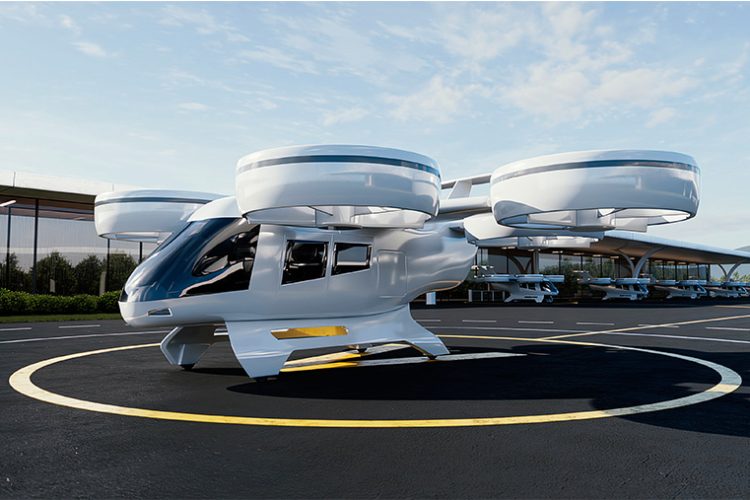Intelligent Energy secures £17 million to fast-track hydrogen fuel cell system for aviation
Posted: 17 June 2025 | Gabriel Higgins | No comments yet
Project HEIGHTS will develop zero-emission hydrogen fuel cells for aircraft, targeting commercial use by the end of the decade.


Credit: Intelligent Energy
Intelligent Energy (IE), a leading UK hydrogen fuel cell manufacturer, has secured £17 million to accelerate the development of a zero-emission hydrogen fuel cell system for commercial aircraft.
Intelligent Energy’s hydrogen fuel cell project aims to revolutionise sustainable aviation and cut emissions across next-generation aircraft
The funding, awarded through the Aerospace Technology Institute (ATI) Programme—a collaboration between the ATI, Department for Business & Trade, and Innovate UK- will support Project HEIGHTS. This three-year initiative will evolve IE’s 300kW modular aviation fuel cell platform into the IE-FLIGHT™ 300 system, aiming to power next-generation aircraft.
Initial applications include Electric Vertical Take-off and Landing (eVTOL) aircraft and short-range commuter planes. IE expects early service in Part 23 aircraft (up to 19 seats) by the decade’s end, with ambitions to scale to larger (Part 25) regional aircraft in the 2030s.
Join us live: Shaping the Next Generation of Hold Baggage and Air Cargo Screening
Join us live for an insightful webinar on 11th December at 14:00 GMT, in collaboration with Smiths Detection, as we explore the strategic balance of operational efficiency, regulatory compliance, and sustainability in high-volume security environments.
This session offers a focused look into future-proofing your security strategy.
Key learning points
- Cost Reduction: Strategies to minimize bag travel time while simultaneously reducing operational costs.
- Regulatory Roadmap: Insights into the next wave of regulatory changes and their impact on future investment decisions.
- Sustainable Systems: Practical approaches to building sustainability into security systems and lowering the total cost of ownership (TCO).
- Scalable Solutions: Real-world examples of scalable systems supporting current airport growth and preparing for tomorrow.
Register now for expert insights, case studies, and actionable strategies on operational efficiency!
Project HEIGHTS tackles a major aviation challenge: cooling fuel cells efficiently without adding weight or aerodynamic drag. IE’s patented direct water-injection system uses compact air-cooled condensers instead of traditional, bulkier glycol radiators. HEIGHTS will further refine this approach, aiming to shrink heat exchangers and enhance overall efficiency.
The aviation industry is under increasing pressure to cut emissions. While battery technology faces limits in weight and range, hydrogen-electric propulsion is emerging as a viable, scalable alternative.
“This programme is about getting hydrogen-powered aircraft in the air, and into service at scale, as quickly as possible,” said David Woolhouse, CEO of Intelligent Energy.
“We firmly believe that hydrogen will be the primary energy source for flight, initially for smaller aircraft but in the longer term for everything that flies. At Intelligent Energy, we have the IP built on 24 years’ experience to give us confidence that we can be the technical leader in this sector. This project supports us in making our modular system even smaller, lighter and more scalable.”
IE’s technology could reduce aviation CO₂ emissions by up to 25.6 million tonnes annually. The total market for such systems is estimated at £19.6 billion, with the potential to create 1,600 jobs through scaled production.
Project HEIGHTS builds on IE’s involvement in H2GEAR, another ATI-supported programme led by GKN Aerospace, and its history of aviation innovation, including Boeing’s first manned fuel cell flight in 2008.
Support comes from the University of Sheffield’s Advanced Manufacturing Research Centre (AMRC), Coventry University, and the Manufacturing Technology Centre (MTC). IE is also expanding its UK operations, opening a £7.1 million fuel cell test centre in Northamptonshire this summer.
Jacqueline Castle, CTO at ATI, said:
“Hydrogen as a fuel source is an essential part of the ATI’s technology roadmaps… This project brings together high-temperature fuel cell systems and world-class thermal management to develop a compelling, power-dense solution for zero-carbon flight.”
Stay Ahead in Aviation — Subscribe for Free!
Get exclusive access to the latest aviation insights from International Airport Review — all tailored to your interests.
✅ Expert-Led Webinars – Learn from industry leaders
✅ Weekly News & Reports – Airport updates, thought leadership, and exclusive interviews
✅ Event Invitations – Be part of the International Airport Summit
✅ Partner Innovations – Discover the latest industry trends
Choose the updates that matter most to you. Sign up now and stay informed, inspired, and connected — all for free!
Thank you for being part of our community. Let’s keep exploring the future of aviation together!
Stay Connected with International Airport Review — Subscribe for Free!
Get exclusive access to the latest airport and aviation industry insights from International Airport Review — tailored to your interests.
✅ Expert-Led Webinars – Gain insights from global aviation leaders
✅ Weekly News & Reports – Airport innovation, thought leadership, and industry trends
✅ Exclusive Industry Insights – Discover cutting-edge technologies shaping the future of air travel
✅ International Airport Summit – Join our flagship event to network with industry leaders and explore the latest advancements
Choose the updates that matter most to you.
Sign up now to stay informed, inspired, and connected — all for free!
Thank you for being part of our aviation community. Let’s keep shaping the future of airports together!
Related topics
Aircraft, Emissions, Engineering, Funding and finance, Green energy, Hydrogen, Innovation, New technologies, Regulation and Legislation, Sustainability
Related organisations
Aerospace Technology Institute (ATI), Boeing, Civil Aviation Authority (CAA), Coventry University, Department for Business & Trade, GKN Aerospace, Innovate UK, Intelligent Energy (IE), Manufacturing Technology Centre (MTC), University of Sheffield Advanced Manufacturing Research Centre (AMRC)


















